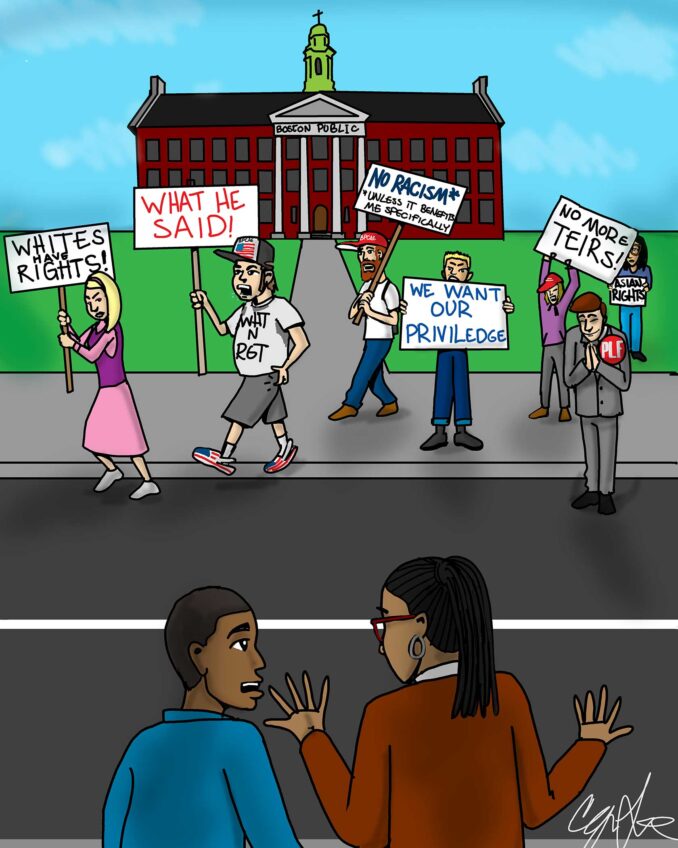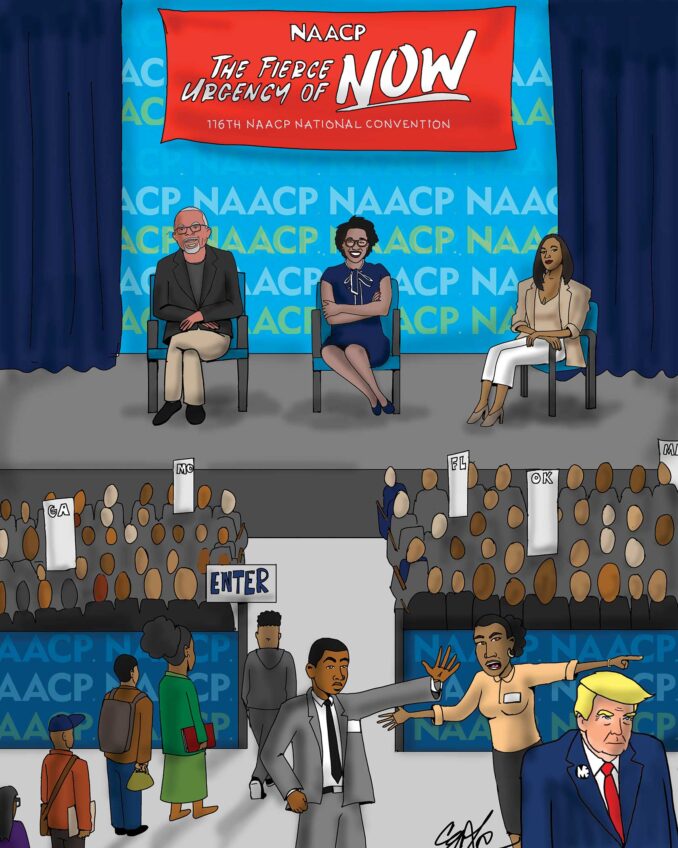The momentum around this year’s mayoral election comes in part due to anticipation in the neighborhoods that new and diverse leadership will not only continue Boston’s strong growth, but also will ensure that all neighborhoods continue to share in that growth.
A roadblock to that positive growth and continued change is in the Question 1 budgeting initiative hiding on the Nov. 2 ballot. This question shifts some of the all-important budgeting powers of the mayor to the City Council — handing over valuable resources in the city’s $6 billion annual budget to the loudest city councilors and their constituencies. That shared budget-writing power would inject chaos and dysfunction into a process that currently works well. Such a change would whisk Boston back toward a time when neighborhoods with the best representation and the loudest social voice came out on top in Boston’s city budget.
On Nov. 2, when voters go to the polls to select their new city leaders, they will be choosing from one of the most diverse pools of candidates in Boston history — whether by race, ethnicity, socio-economic status, gender or even by neighborhood geography. That is seen as a step in a new direction when it comes to representation and voices at the table in city government. To preserve the strength of new voices at the table and ensure the new mayor can deliver a strong and equitable city budget once again, as mayors have done throughout recent history, voters in all of Boston’s neighborhoods should vote no on 1.
Instead of relying on the new mayor for the city budget, Question 1 will unnecessarily give 13 city councilors the ability to re-write the new mayor’s city budget however they and their loudest and most powerful supporters see fit. This brings politics into the process and could return the long-retired practice of robbing one neighborhood for the benefit of another. Why risk that just at the time when so many new and different voices have come to the table?
The city moved to a strong mayoral form of government so that a citywide elected mayor and his or her administration could have the ability to distribute resources equally across the city. While there’s always more to be done on this topic, the current mayoral-driven city budget process has improved how resources are delivered in all neighborhoods and has made huge strides in making sure no corner of the city is left behind.
A yes vote on Question 1 looks to derail that strong and equitable process.
What’s to stop a district city councilor, elected by voters in only one part of the city, from taking over the council’s new budgeting process and funneling money into his or her district, while leaving others starving for resources?
Boston voters should not want to create a city where one area has nice fields well-prepared for youth sports, while other parts of the city don’t even have a field for kids to play on. Likewise, voters should be wary of ushering in an outcome where one powerful council district receives large allocations for ample numbers of firefighters, while less-vocal parts of the city suffer station brownouts, outdated fire engines and bare minimum fire protection due to chronic funding shortages. Would we want to enter into a time, unlike now, when residents have to travel to the most politically-powerful neighborhood to enjoy a safe and well-kept park where crime is absent and the grass is clipped regularly?
As the city sets out next year with a new and diverse set of leaders, such outcomes as described above are exactly the opposite of what voters going to the polls in this historic election want to see. Now isn’t the time to exchange the equitable city budget process for a budget determined by the powerful and vocal, and that’s why it’s critical to vote no on 1 this Nov. 2.
Pam Kocher is president of the Boston Municipal Research Bureau.






